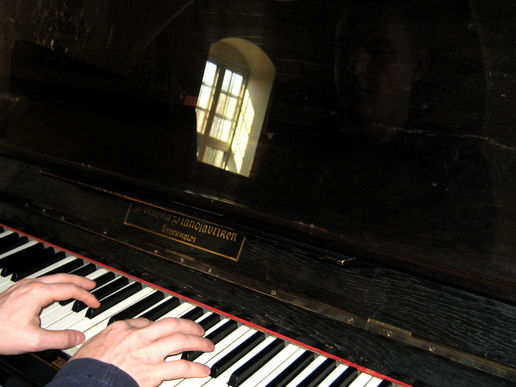(This blog is part of a series. See my blog entitled "Worship Formation" posted on August 31, 2012 for the introduction to the series)
The editor’s of the old Trinity Hymnal said in the preface, “It is well known that the character of its song, almost equal with the character of its preaching, controls the theology of the church.”[1]
The church’s song is about story. Throughout Scripture we find that when God’s people remember His saving acts, they invariably sing. After their deliverance from Egypt, Miriam, Moses and the people sang (Exodus 25:1-8). When David prepared a place for the Ark of the Covenant, he appointed musicians who sang a song of thanksgiving (1 Chronicles 16:8-34). The angels sang of the glory of God at Christ’s birth (Luke 2:14). And at the conclusion of the story there is song (throughout the book of Revelation). The reason for the song is to tell the story of God’s mighty acts. Music is the means by which the Body of Christ remembers and celebrates what God has done.
The songs in our worship services are to a great degree formative. “We are far more likely to find ourselves humming something we sang in church when we go home than we are to find ourselves meditating on a phrase in the sermon,” observes Rosalind Brown. “Words set to music engage the emotions and lodge in the memory. The refrains of hymns and choruses are even more likely to stick in the mind, simply because they are sung more frequently.”[2] In the previous chapter we looked at the phrase lex orandi, lex credendi: the way in which we worship is the way in which we believe. There is an adaptation of that phrase that says lex cantandi, lex credendi: the way in which we sing is the way in which we believe. The songs we sing in church lodge themselves into our minds as truth.
John Wesley wrote, “I would recommend [the hymnbook] to every truly pious reader: as a means of raising or quickening the spirit of devotion, of confirming the faith, of enlivening his hope, and of kindling or increasing his love to God and man.”[3] Martin Luther considered his people “theological barbarians” and so taught them basic theology by devoting Thursday evenings to congregational hymn singing.[4]
As the worshiper sings truths found within songs, their faith is strengthened, their theology is founded and their spirit is formed.
[1] Trinity
Hymnal (Philadelphia: Great Commission Publications, 1961), vi.
[2] Brown, How Hymns Shape Our Lives, 21.
[3] J. Wesley, Preface to the
1780 handbook, paragraph 8. Quoted in Brown, How Hymns Shape Our Lives, 6.
[4] Bainton, A Life of Martin Luther, 267.


